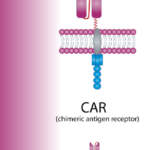This study affirms that dysbiosis is a feature of rheumatoid arthritis (RA) and suggests that specific therapies may differentially modulate the gastrointestinal microbiota in RA.
What the Joints Say: Challenges of Tender & Swollen Joint Count Differences
In a new study published in ACR Open Rheumatology, researchers evaluated the impact of tender-swollen joint difference on functional outcomes in early RA and whether associations vary by joint size.

Interventions to Delay RA Onset
Two new successful trials in abatacept, APIPPRA and ARIAA, are the first to convincingly demonstrate the potential of a preventive approach to RA treatment.

2024 Research Updates in ANCA-Associated & IgA Vasculitis
Summaries of selected research abstracts on ANCA-associated vasculitis & IgA vasculitis from the International Vasculitis Workshop.

3 AC&R Study Summaries: Lupus Fog, SSc Variance By Ethnicity & Tuberculosis Screening in New DMARD Users
Lupus Fog? By Laura C. Plantinga, PhD, Patricia P. Katz, PhD, S. Sam Lim, MD, MPH, C. Barrett Bowling, MD, MSPH, & Jinoos Yazdany, MD, MPH Why was this study done? Perceived cognitive impairment (i.e., lupus fog) is common in systemic lupus erythematosus (SLE). However, comprehensive, multidomain assessments of objective cognitive function are rarely performed….

What’s New in Large Vessel Vasculitis
The large vessel vasculitides were a major focus of the 21st International Vasculitis Workshop held in Barcelona in April. The biennial conference brings together specialists from multiple disciplines, including rheumatology, nephrology and immunology, to discuss cutting-edge vasculitis research. This article reviews important points regarding the pathogenesis, diagnosis and management of both giant cell arteritis and…

CAR-T Cells: Are We Closer to Drug-Free Remission Than We Think?
Most Sunday mornings, I make myself an exceptional cup of pour-over coffee and sit down on my deck with the latest issue of the New England Journal of Medicine. I check out the image of the week. I read the case report with pen in hand, racing to diagnose the patient before the authors spill…
Changes in the Rheumatology Workforce
Mannion et al. set out to describe the adult rheumatology workforce in the U.S. by measuring the number of rheumatologists and advanced practice providers entering and exiting the field and studying their demographics.

Methotrexate Shows Promise for Hand Arthritis
Methotrexate—an affordable, established drug for rheumatoid arthritis—may also be helpful for patients suffering from osteoarthritis (OA) of the hand, a recent study reports.1 Treatment of hand OA and inflammation with 20 mg of methotrexate for six months had a moderate, but potentially clinically meaningful, effect on reducing pain and stiffness in patients with symptomatic hand…
Calprotectin Shows Promise as APS Thrombocytopenia Biomarker
Hoy et al. sought to evaluate the presence, clinical associations, and potential mechanistic roles of circulating calprotectin in a cohort of patients with primary antiphospholipid syndrome (APS) and those with antiphospholipid antibodies. Calprotectin levels were higher in patients with primary APS and those with antiphospholipid antibodies than in healthy controls. These data suggest that calprotectin has the potential to be a functional biomarker and a new therapeutic target for APS-related thrombocytopenia.
- « Previous Page
- 1
- …
- 5
- 6
- 7
- 8
- 9
- …
- 130
- Next Page »